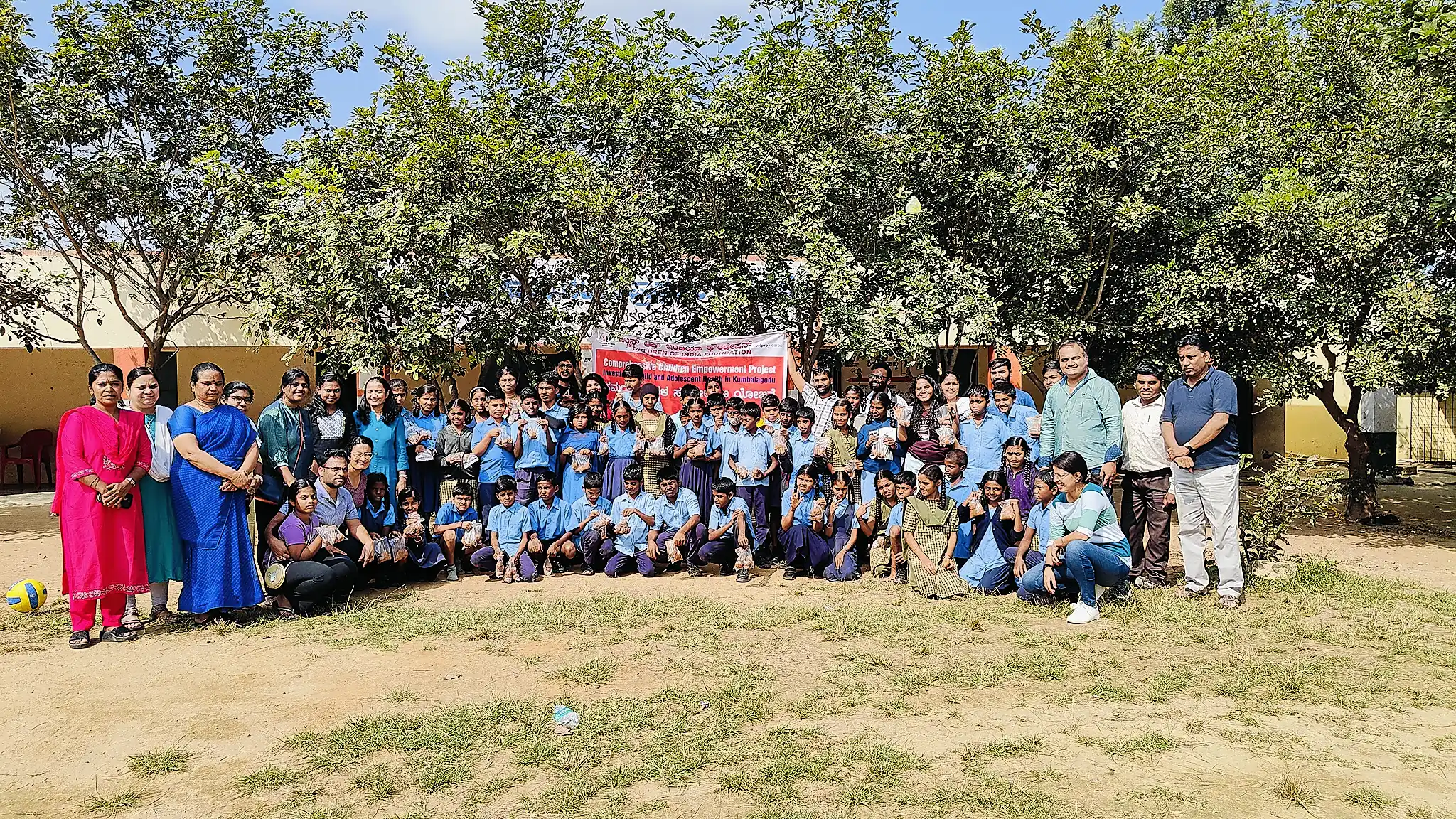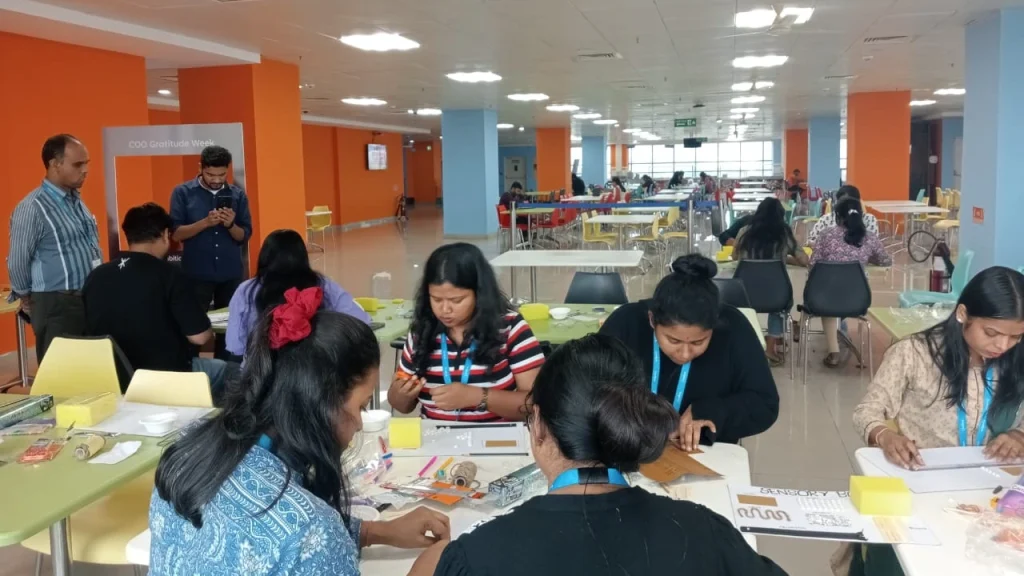Wipro’s journey in employee volunteering
This article discusses Wipro's employee volunteering programs. It shows how these are an integral part of both its ESG strategy and employee well-being initiatives.

At Wipro, being socially responsible is at the core of how we define ourselves and act. It is linked to the realization that we are part of a larger ecosystem comprising of different stakeholders and communities. Thus ‘giving back’ is an ingrained part of Wipro’s culture, carried out not only by Wipro, but also by Wipro employees.
Over the years, the organization has cultivated a culture where employees actively contribute to social change. This is not just through financial support, but also by dedicating their time, skills and expertise. Employee volunteering is not merely an adjunct to Wipro’s corporate social responsibility (CSR) efforts, but a core element of its sustainability strategy.
A legacy of purpose-driven volunteering
Wipro’s structured approach to volunteering took shape in the early 2000s with the establishment of Wipro Cares,a trust based on the operating model of employee volunteering and contributions that are matched by Wipro. This makes employees an integral part of the social programs. Since then, employees have played a key role in contributing to underprivileged communities. We encourage employees to volunteer with our NGO partners and act as catalysts to bring about positive changes in community development, while fostering a sense of citizenship and responsibility toward society.
In the past two decades, thousands of employees have volunteered for numerous causes. These include donating blood, providing humanitarian aid during natural disasters and the Covid-19 pandemic, supporting animal welfare, and participating in our community projects across the focus areas of education, healthcare, and the environment.
Aligning volunteering with sustainability goals
Employee volunteering is intricately linked to Wipro’s broader ESG (Environmental, Social, and Governance) strategy.
Social sustainability: Volunteering initiatives in education and healthcare have enhanced the quality of life for marginalized communities. This directly contributes to social equity and inclusion.
Environmental stewardship: Employees participate in tree-planting drives, seed ball making, cleanliness drives, and sustainability education initiatives. These reinforce Wipro’s commitment to responsible environmental practices.
Governance and ethical engagement: The volunteering ethos at Wipro strengthens the company’s culture of ethical leadership and responsible business. This enhances its reputation as a socially conscious organization.

Reviving the volunteering program at Wipro
The Covid-19 pandemic fundamentally changed the workplace, highlighting the need to prioritize employee health and well-being. We designed well-being initiatives to help employees cultivate habits, activities and approaches needed to succeed and thrive. With an understanding that being involved in our communities is important for a sense of belonging and overall well-being, we added community as one of the pillars of employee well-being (alongside mind and body).
Thus, we integrated the volunteering program with employee well-being. Our focus now has shifted from solely volunteering for a social cause, to volunteering for personal and professional growth along with social impact. We have introduced three key dimensions for volunteering, which are shared below.
Purpose: We provide opportunities to contribute toward addressing societal challenges. This, in turn, creates positive impact on communities.
Well-being: Employees have opportunities to engage with friends and family members in meaningful activities. This balance between work and volunteering can reduce stress and prevent burnout.
Skill development: Through volunteering, employees also gain opportunities to hone skills like teamwork, communication, adaptability and leadership.
Participation in volunteering has gained momentum in FY25 after merging employee volunteering with employee well-being. This unification has led to many new initiatives. These include on-campus volunteering and providing platform for family members to participate in volunteering events on weekends.
Keeping the volunteer spirit alive
Sustaining employee motivation in volunteering programs needs more than just structured initiatives. It demands an intrinsic culture of service and recognition. We have implemented several strategies to keep our volunteers engaged and motivated.
Skill-based volunteering: This includes aligning volunteering activities with employees’ skills and interests. Examples of such initiatives include mentoring students and developing tech solutions and policies for NGOs. These opportunities ensures a fulfilling and impactful experience.
Recognition: Volunteering is inherently selfless. However, at the same time, Wipro acknowledges and celebrates active contributors through internal awards, storytelling platforms, and volunteering newsletters.
Flexibility and accessibility: We provide employee volunteers with options such as virtual volunteering, micro-volunteering, and entry level volunteering opportunities during lunch breaks. Employees can, thus, participate in causes that resonate with them despite work constraints.
Leadership involvement: Senior leaders actively champion volunteering efforts. This inspires participation across levels. It also reinforces the company’s commitment to community service.
Navigating the challenges
While Wipro has successfully built a strong volunteering culture, challenges remain.
Balancing volunteering amidst workload pressure: Many employees are yet to recognize volunteering as a part of their holistic development. Balancing volunteering with professional responsibilities can be challenging.
Measuring impact effectively: Demonstrating tangible impact beyond participation numbers is complex. We are continuously evolving our impact assessment frameworks to capture both qualitative and quantitative benefits of volunteering initiatives. These frameworks aim to evaluate the impact on employee well-being, skill development, and societal and environmental outcomes.
Sustaining long-term commitment: While initial enthusiasm is high, sustaining long-term engagement is an ongoing challenge. Creating continuous engagement loops and aligning with employees’ personal and professional growth helps in maintaining momentum.
Looking ahead: a future of collective impact
Wipro’s volunteering journey reflects its unwavering belief that corporates have a responsibility to give back to society. Employee volunteering is a strategic pillar that strengthens community relations and builds a purpose driven workforce. It also contributes meaningfully to the sustainability agenda.
As we move forward, the goal is not only to scale the impact of volunteering programs but also to refine our focus. We hope this will ensure deeper engagement, sustained impact and a stronger connection between our business objectives and social change. By continuing to nurture a culture of giving, we reinforce the idea that when businesses and employees work together for a common cause, we can create a just, equitable, humane and sustainable society.




No approved comments yet. Be the first to comment!